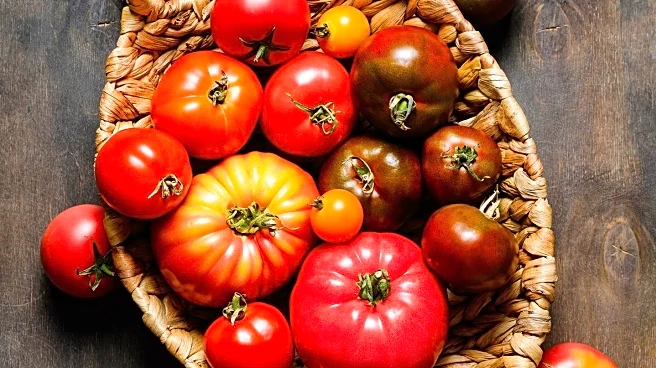What's Happening?
Merrill & Houston's Steak Joint in Beloit, Wisconsin, is set to revive a 150-year-old culinary tradition with its annual Beefsteak Dinner on October 25. The event, scheduled from 6 to 8:30 p.m., offers
an all-you-can-eat-and-drink experience where guests are encouraged to abandon traditional dining etiquette. Participants will enjoy steak, beer, and wine without the use of forks, creating a unique and informal dining atmosphere. Attendees will don matching hats and aprons as they gather around a large table to partake in this communal event. Tickets for the dinner are available for purchase online, and the event aims to bring together friends, family, and community members for a memorable evening.
Why It's Important?
The revival of the Beefsteak Dinner tradition at Merrill & Houston's highlights the enduring appeal of communal dining experiences that emphasize camaraderie and informality. Such events can strengthen community bonds and provide a sense of continuity with historical culinary practices. For the restaurant, hosting this event not only attracts patrons but also reinforces its identity as a venue that values tradition and community engagement. This can have positive implications for local tourism and the restaurant's reputation, potentially boosting business and fostering a sense of local pride.
What's Next?
As the event approaches, Merrill & Houston's may see increased interest from both locals and visitors eager to experience this unique dining tradition. The success of the event could lead to its establishment as a regular fixture on the local calendar, encouraging other businesses to explore similar community-focused events. Additionally, the restaurant may consider expanding the event or introducing new elements to enhance the experience in future iterations.
Beyond the Headlines
The Beefsteak Dinner tradition, with its roots in 19th-century New York, reflects broader cultural trends towards nostalgia and the celebration of historical practices. Such events can serve as a reminder of the importance of preserving cultural heritage in a rapidly changing world. They also offer a counterpoint to the fast-paced, technology-driven dining experiences that dominate the modern culinary landscape.








